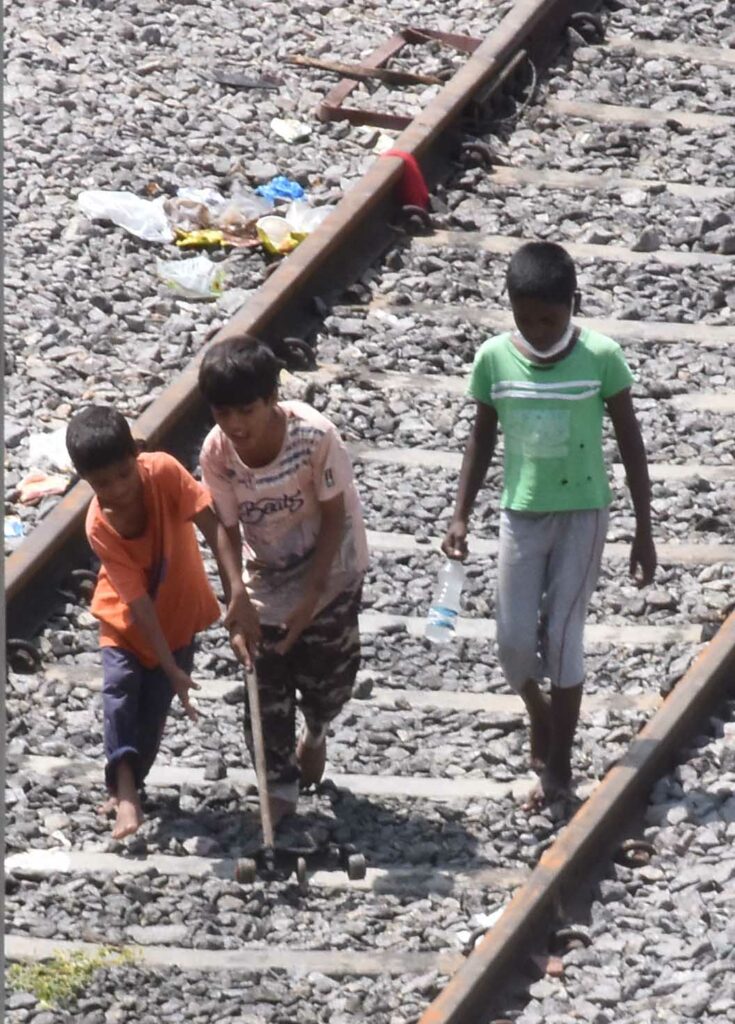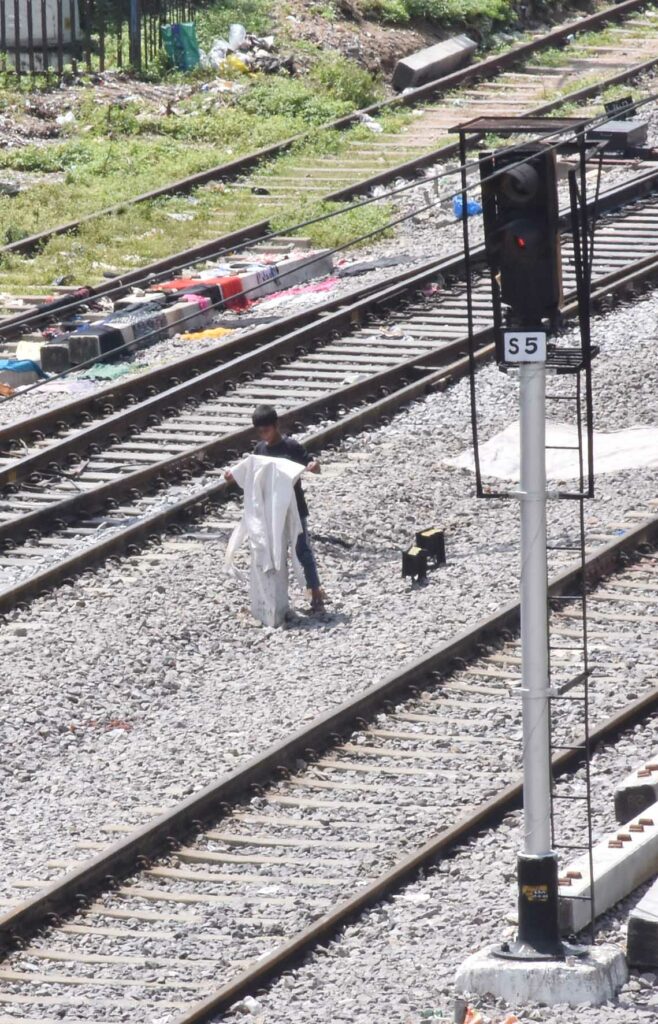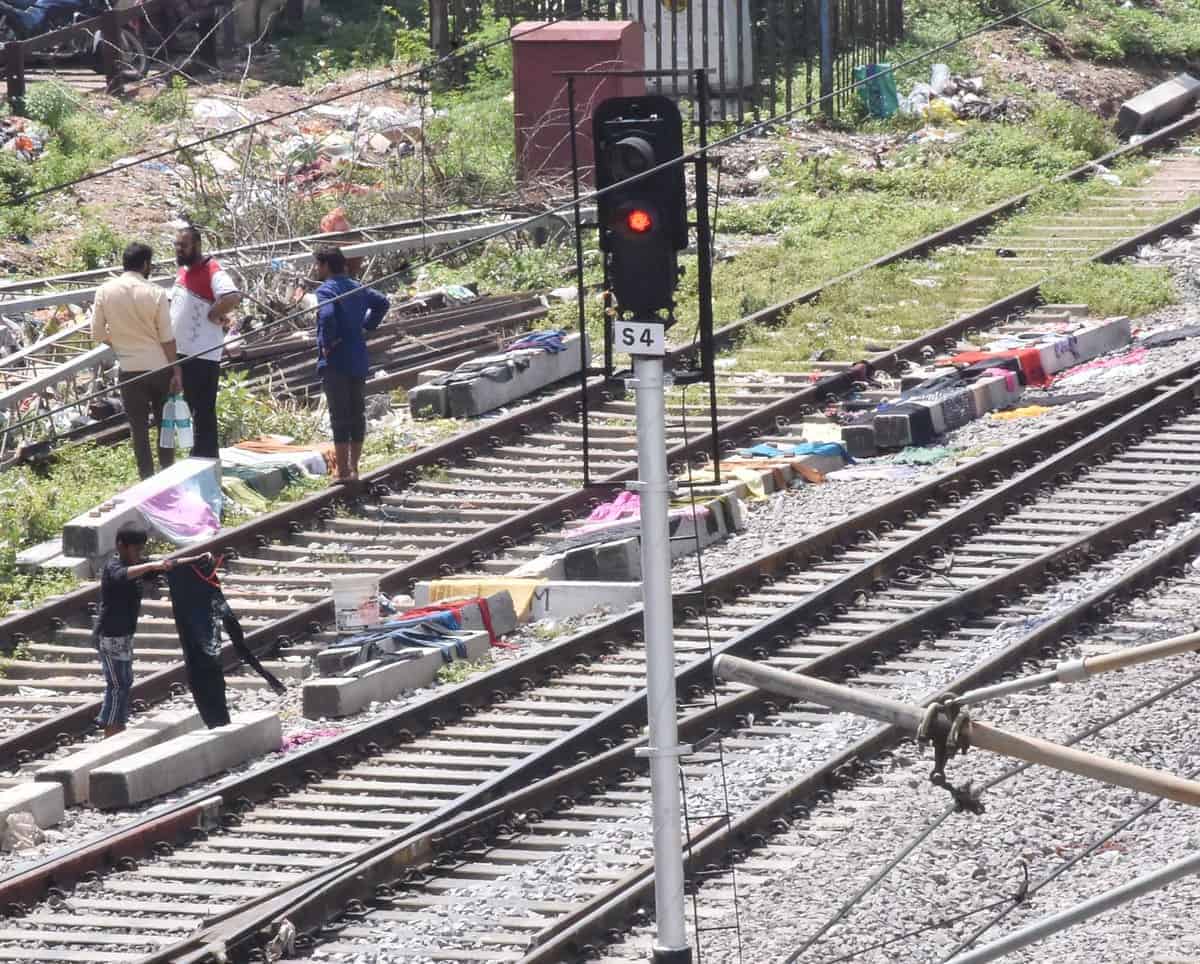Hyderabad: Anxiety and uncertainty have gripped the minds of several flood-victims residing along the Falaknuma railways tracks, as they have been rendered homeless, thanks to the last week’s floods that ravaged their homes. Displaced, many of them are still unable to return to their houses, which are still filled with water.
Currently with nowhere to go, these residents of Falaknuma say that they are not willing to stay in flood relief camps set up by the municipal corporation due to the ongoing coronavirus (COVID-19) pandemic that is continuing unabated. The heavy rains that lashed Hyderabad on October 13 had caused floods in parts of southern Hyderabad, as nalas and local lakes or water bodies overflowed into low-lying areas.

With no option left, Zubaida Bano and her three children, who used to live at Al Jubail Colony, have been living along the railway tracks from the past eight days as. Their house is on the banks of the Falaknuma nala which was continuously flowing due to heavy rains some days ago.
“Me and my family were rescued by Indian army officers in a boat. From there we were temporarily shifted to a function hall in Hafeez Baba Nagar the next morning. Eventually, others started going back to their homes or to stay with their relatives. We were also asked to leave, but we don’t have any relative here as my family recently moved to Hyderabad from Karimnagar,” says Zubaida.
Her husband Shakir Ahmed is an autorickshaw driver. “No one came to help us. I spent the entire day near the Falaknuma flyover waiting for the water to clear from my house, but it did happen. There is still water inside my house. After it began raining heavily last week, I took my family to the Falaknuma railway station and we are somehow managing here by drying up some clothes on the tracks,” he stated.

After the floods took place, state IT and Industries minister K.T. Rama Rao along with Hyderabad Member of Parliament (MP) Asaduddin Owaisi visited flood-hit areas and provided Rs. 10,000 as flood relief aid to victims. However, there are many families which still need help, and are currently managing to survive by living under bus stops, in slum areas, and on the railway tracks.
“The Telangana government should identify victims who have left their houses and are living on the streets. After the floods, some of the victims began living with their relatives. The authorities should provide them financial aid and help them to rebuild their houses, or should assure them that they will get a house under the two bedroom housing scheme,” said Ghulam Hamdani, an activist who is providing essential items to the flood-hit victims living on the railway tracks.

